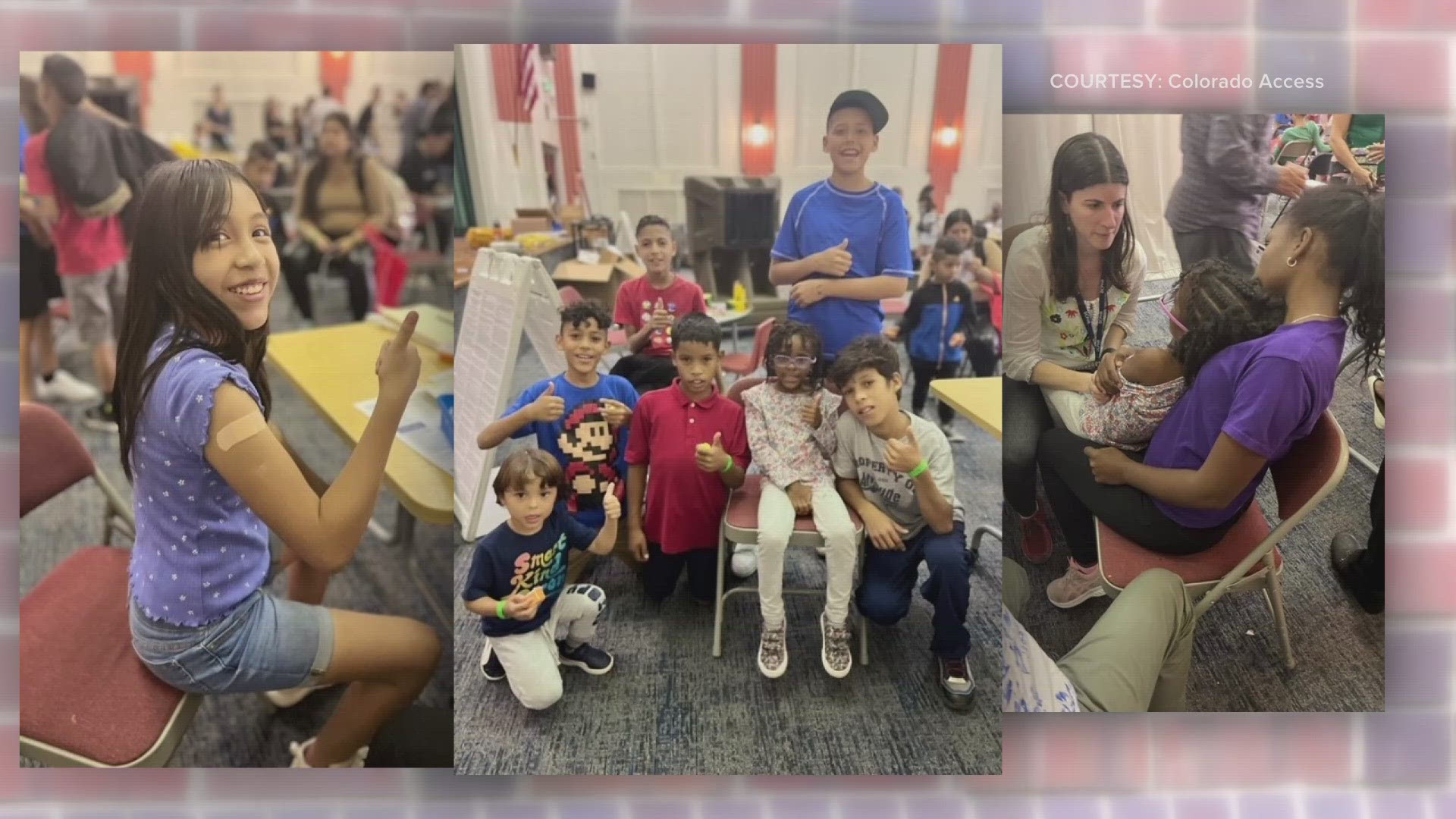DENVER — When families traverse several borders and treacherous landscapes to come to the United States seeking a better life, they often find themselves in cities like Denver with people like Eileen Schwartz to help them.
"Public health, that's one of our primary roles, keeping our kids and our teachers safe and healthy," Schwartz said.
She is a school nurse at Bryant Webster ECE-8 School in northwest Denver. Bryant Webster is one of a series of schools across the city taking in the hundreds of students who are arriving as migrants.
"You start the school year and you think maybe you're going to have 370 students and then within the first month and a half of school, you have an additional, you know, 50 or 60 students," Schwartz said.
Denver Public Schools has identified 10 schools across the district that have seen a large influx of migrant students who just arrived in Denver, including Bryant Webster.
"It's definitely getting bigger, but then there are also some that are leaving," Schwartz said. "So, where we have kind of a running list of of our refugee students who's here and are they still here? Wait, they haven't been here in a week now. Are they coming back?"
Schwartz said these kids are constantly on the move.
"There are some that, you know, their family, they run out of time (in the shelter) and then they're on the street and that it's very hard for our community to hear," Schwartz said.
After a period of 37 days, migrant families have to leave city-run shelters. When kids have to move, they can end up without a home and that is a concern for Schwartz.
"You know, for me, like yesterday, a teacher just reached out, I think the end of the school day with concern about hey, maybe the student have had frostbite and, you know, I, I was like, my gosh, yeah. That is another thing that needs to be on our radar because these kids some of them are spending the night, some of them outside," Schwartz said.
From the serious to the routine, Schwartz wants to care for these kids. She is helping migrant students keep up-to-date with immunizations.
"You know, things like polio, measles, mumps, rubella, varicella. I mean, there's a whole slew of them that are required (in school). And so you want to make sure that you can get these to these children so that you protect your whole community," Schwartz said.
She also expands opportunities for these children by setting up physicals so they can play team sports like everyone else.
"A little bit of normalcy in their childhood, and that was like, I, I thought it was such a tiny thing, But for me, I'm like, my goodness, we were able to do this so that they can play volleyball, to play soccer with their new friends," Schwartz said.
But, she is worried that her care is not enough.
"I think it's a way bigger issue than just like this one school trying to move these things. Yes, we can do that. But right now, refugees are going to keep coming, keep coming. And how do you sustain that?" Schwartz said.
At a school helping migrant students, Schwartz said she's the one learning a lesson.
"It's very hard. It's very hard. And you just, you try not to take that home with you because you have your own family," Schwartz said. "It offers a whole different perspective on wants and needs."
SUGGESTED VIDEOS: Education stories from 9NEWS

